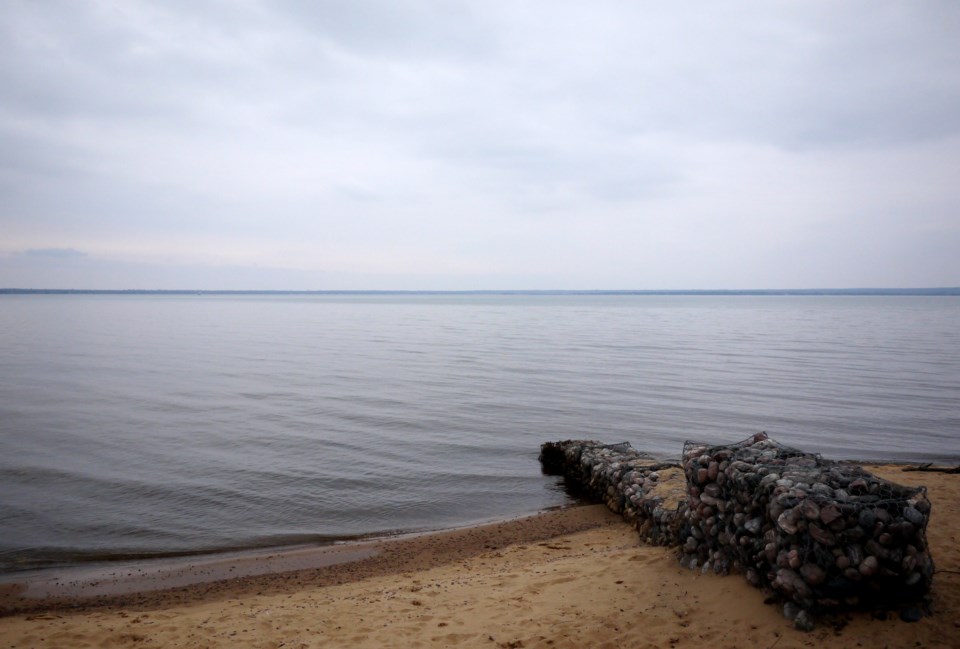Jonathan Bouma, manager of environmental health at Algoma Public Health, expects no cancer-causing benzene will be found in wells currently being tested on Nokomis Beach Road, Des Chenes Drive and Point Des Chenes Crescent.
"We're expecting negative results....zero benzene, like last time" Bouma tells SooToday.
As SooToday reported on Friday, Transport Canada and Ottawa-based BluMetric Environmental Inc. have been collecting well water samples this month from 66 homes near the Pointe des Chenes campground.
In 2007, 2008 and 2015, benzene was detected in drinking water at Pointe des Chenes campground in concentrations up to 2.6 times the maximum allowed by Ontario's Safe Drinking Water Act.
PUC, which operates a city-owned water treatment system at the city-owned park, has posted 'do not drink the water' signs in the park for the past eight years and arranged delivery of bottled water.
The treatment plant serves only the park, not nearby homes.
Concerned that benzene might be present in other nearby groundwater sources, the health unit and provincial environment ministry arranged in 2008 to sample well water from nearby residences for benzene and perfluoroalkylated substances.
All residential samples taken in 2008 were found to comply with the provincial drinking water maximum of five micrograms of benzene per litre of water.
This month's re-testing of the same residences tested in 2008 is intended to determine whether the carcinogen has spread to adjacent properties.
Transport Canada has set no timeline for completion of testing and communication of results, but APH's Jonathan Bouma hopes to receive answers around the end of the year, allowing a public announcement early in 2017.
It's been known for more than a century that benzene exposure damages bone marrow, reducing numbers of circulating blood cells.
More recently, the highly flammable component of crude oil has been linked to several types of leukemia.
APH officials believe the Pointe des Chenes benzene is coming from a former Transport Canada fire suppression training site on the nearby Sault Ste. Marie Airport property.
Responding to our coverage last week, one SooToday reader who used to live at Nakomis Beach described watching fire responders from the airport extinguishing training fires.
"They used a massive culvert with holes cut in the sides to resemble an aircraft," the reader said. "The fire-site soil was always a place to stay away from and always reeked of fuel even months after fire drill. Oldtimers from the airport also reported using Mary Ann Lake as a dumping site for barrels of unknown content."
Terry Bos, the airport's president and chief executive officer, says that when the federal government transferred ownership of the airport to Sault Ste. Marie Airport Development Corp. in 1998, it retained environmental liability for the south side of the property where the fire training occurred.
It was the federal government that initiated the new round of residential well water chemical tests.
Meanwhile, Transport Canada has recently completed installing granulated activated carbon filters at the city's water treatment plant at Lions Club Pointe des Chenes campground.
The new filters are intended "to pilot test the treatment of dissolved benzene concentrations" in the plant, Transport Canada disclosed in a request for proposals for the upgrade.
Bouma said that subject to additional testing, the 'do-not-drink' signs could be removed as early as next spring.
In other Pointe des Chenes news, Sault Ste. Marie Airport Development Corp. is currently seeking approval for two new residential lots on a proposed extension of Nokomis Beach Road.
One proposed parcel on the Lake Superior side of the road is 2.93 hectares (7.25 aces).
The other lot on the east side of Nokomis Beach Road would be 1.45 acres (3.6 acres).
